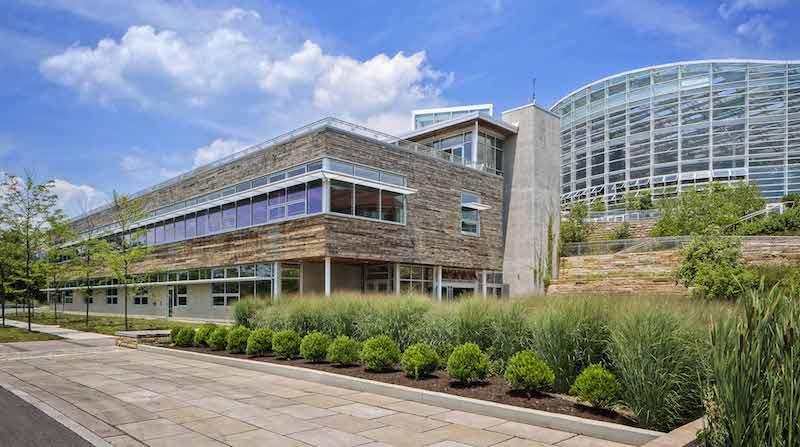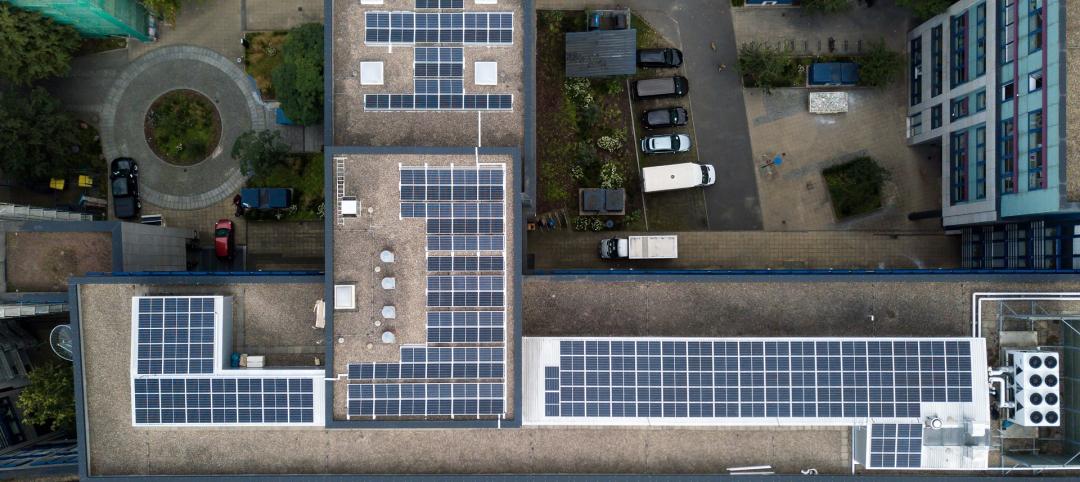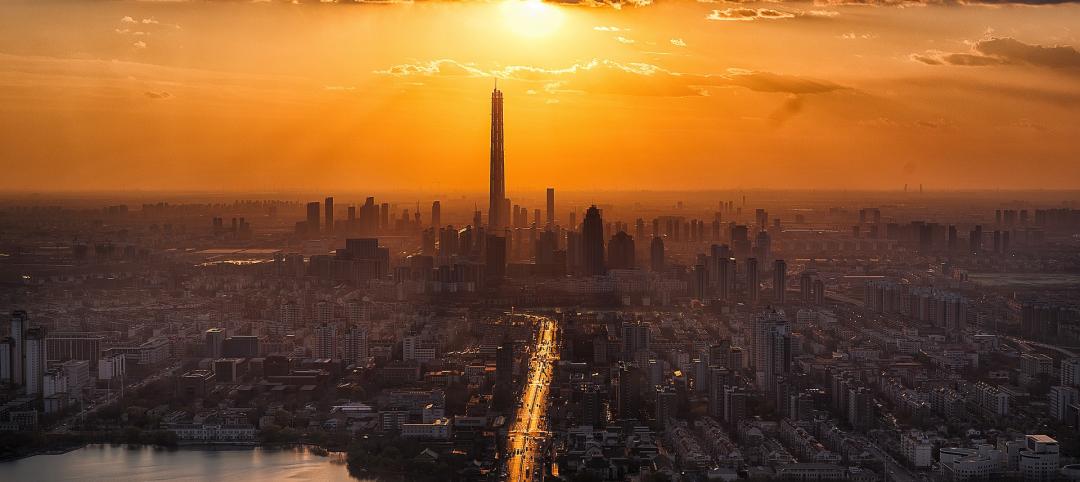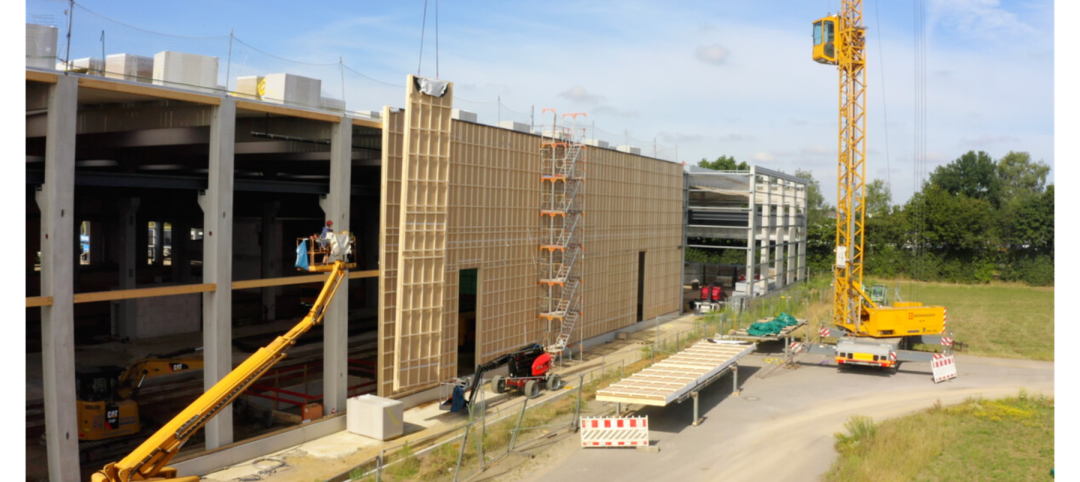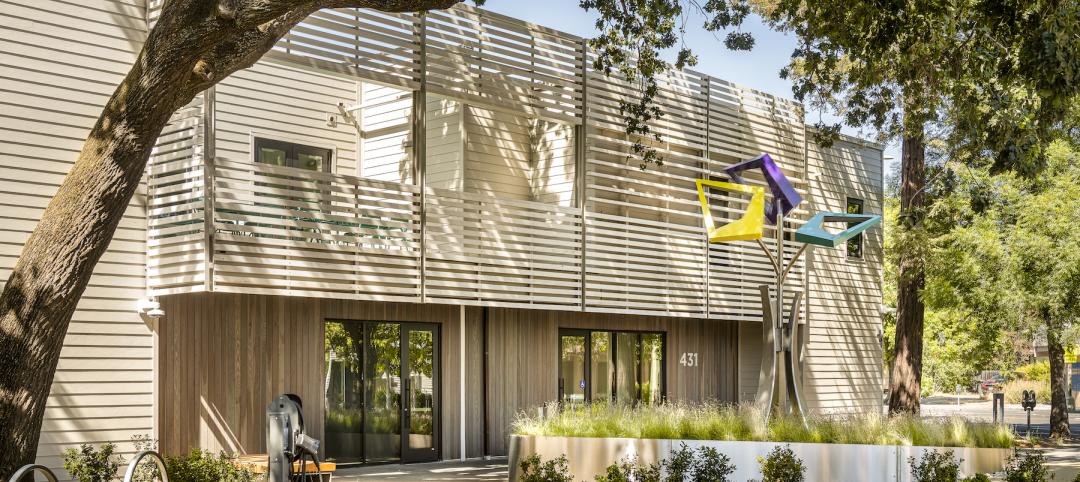The Center for Sustainable Landscapes (CSL) at the Phipps Conservatory and Botanical Gardens in Pittsburgh, Pa., has recently become the first certified Sustainable SITES Initiative v2 Platinum project in the world. The building originally opened in 2012 and was the first and only project to receive SITES 2009 Pilot Four Star certification.
The CSL was built over a previously documented brownfield with the goal of restoring the site. Since 2012, the project has successfully reintroduced 100 native plant species to the surrounding area. The building is net-zero energy and net-zero water thanks to its PV solar panels, a wind turbine, and a system for capturing and treating all water onsite for reuse.
See Also: First photos inside the nearly completed Jewel Changi Airport addition
The new SITES v2 Rating System builds off the 2009 pilot certification. SITES certified projects are better equipped to withstand catastrophic events like floods, droughts, and wildfires. They reduce water and energy demand, improve air quality, and promote human well-being.
SITES is owned and administered by Green Business Certification Inc. Certification is based on a point system: the number of points a project earns determines the certification level it receives (SItes Certified: 70-84 points, SITES Silver: 85-99 points, SITES Gold: 100-134 points, SITES Platinum: 135+ points).
Related Stories
Green | Nov 13, 2022
NREL report: Using photovoltaic modules with longer lifetimes is a better option than recycling
A new report from the U.S. National Renewable Energy Laboratory (NREL) says PV module lifetime extensions should be prioritized over closed-loop recycling to reduce demand for new materials.
Green | Nov 13, 2022
Global building emissions reached record levels in 2021
Carbon-dioxide emissions from building construction and operations hit an all-time high in 2021, according to the most recent data compiled by the Global Alliance for Buildings and Construction.
University Buildings | Nov 13, 2022
University of Washington opens mass timber business school building
Founders Hall at the University of Washington Foster School of Business, the first mass timber building at Seattle campus of Univ. of Washington, was recently completed. The 84,800-sf building creates a new hub for community, entrepreneurship, and innovation, according the project’s design architect LMN Architects.
Industry Research | Nov 8, 2022
U.S. metros take the lead in decarbonizing their built environments
A new JLL report evaluates the goals and actions of 18 cities.
Green | Nov 8, 2022
USGBC and IWBI will develop dual certification pathways for LEED and WELL
The U.S. Green Building Council (USGBC) and the International WELL Building Institute (IWBI) will expand their strategic partnership to develop dual certification pathways for LEED and WELL.
Wood | Nov 1, 2022
A European manufacturer says its engineered wood products can store carbon for decades
Metsä Wood, a Finland-based manufacturer of engineered wood products, says its sustainable, material-efficient products can store carbon for decades, helping to combat climate change.
40 Under 40 | Oct 19, 2022
Meet the 40 Under 40 class of 2022
Each year, the editors of Building Design+Construction honor 40 architects engineers, contractors, and real estate developers as BD+C 40 Under 40 awards winners. These AEC professionals are recognized for their career achievements, passion for the AEC profession, involvement with AEC industry organizations, and service to their communities.
Green | Oct 5, 2022
In California, a public power provider’s new headquarters serves as a test case for an innovative microgrid and for reducing greenhouse gas emissions
Sonoma Clean Power (SCP), the public power provider for California’s Sonoma and Mendocino Counties, recently unveiled its new all-electric headquarters.
Resiliency | Sep 30, 2022
Designing buildings for wildfire defensibility
Wold Architects and Engineers' Senior Planner Ryan Downs, AIA, talks about how to make structures and communities more fire-resistant.
| Sep 23, 2022
High projected demand for new housing prompts debate on best climate-friendly materials
The number of people living in cities could increase to 80% of the total population by 2100. That could require more new construction between now and 2050 than all the construction done since the start of the industrial revolution.


